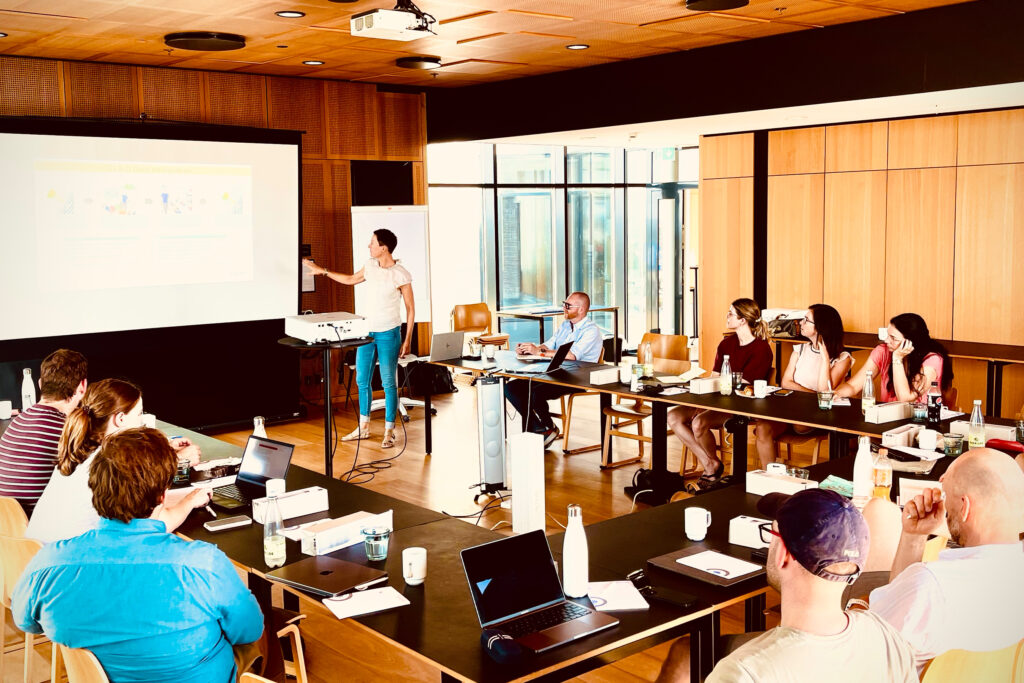Drs David McNaughton, Hazel Jenkins, Aron Downie and Sasha Aspinall
The Chiropractic Academy of Research Leadership (CARL) Program is a grassroots initiative fostering positive, forward-looking, credible academic leadership within chiropractic. It aims to link promising early career researchers who are dedicated to developing a global research network and producing high-quality evidence regarding chiropractic and musculoskeletal disorders.
The CARL program was developed by world-leading researchers Jan Hartvigsen (Denmark), Greg Kawchuk (Canada), and Jon Adams (Australia) who mentor the CARL fellows in a range of leadership, networking, and research-specific skills relevant to early/mid-career researchers. The Australian Chiropractic Association (ACA) continues to be a strong supporter of the CARL program. In particular, the Australian CARL fellows Drs David McNaughton, Hazel Jenkins, Aron Downie, and Sasha Aspinall would like to thank the ACA for their support and for enabling us to be part of this inspiring initiative.
Despite the challenges of the COVID-19 pandemic, CARL first worked together online in 2020 and 2021 to produce multiple research projects – CARLoquium 2021 & 2022. Recently, the 14 current CARL fellows from Australia, Europe, and North America, had their first residential in Odense at the University of Southern Denmark. There was an ecstatic sense of excitement and anticipation within all the fellows to meet an exceptional group of international early career researchers.
Day 1 began with an introduction to the Danish chiropractic program, and we were introduced to senior research and teaching staff at the university. We were impressed with the high-quality research program which encompassed international experts in chiropractic, sports sciences, and physiotherapy. Further, we had a tour of the world-class facilities at the university. This exposure generated innovative ideas to enhance the research and clinical training of chiropractors at our home institutions. As part of this day, we were provided with opportunities to collaborate on several ongoing research projects and available data.
Day 2 was an intense workday. We used the time together in person to establish multiple research projects and accelerate the completion of existing and ongoing projects. The CARL program has already produced a series of high-quality publications and looking to the future, many more are in the pipeline. In addition, we heard from Prof Alice Kongsted and Prof Karen Søgaard, both world-leading back pain and physical activity researchers. Prof Kongsted presented her experiences in research management and how understanding team structures within research units may drive innovation and output. Prof Søgaard, reflected on her work regarding Equity, Diversity, and Inclusion (EDI) amongst the research community. A priority for the current CARL cohort is to enhance EDI within the chiropractic profession and research community, and this talk provided a valuable perspective and clear actionable steps for the CARL fellows.
On day 3, we were introduced to several European CARL 1 fellows, who shared their experiences from the first cohort, and how best to leverage the vast opportunity from the program. In addition, we heard from two amazing speakers. First was Dr Christine Stabell Benn, a medical doctor and senior researcher in the field of non-specific effects from vaccines. Throughout her career, she has encountered considerable resistance from many sources. She spoke to us about her research and how she has dealt with political and academic resistance and even harassment. Finally, we heard from Charlotte Wien, who is Professor of Research Communication at Odense University Hospital. She highlighted the various ways of communicating research findings, how impactful they are (metrics and what they mean), and how and why you should prioritise communication of your research on diverse platforms. She also discussed her career and the flexibility and adaptability that her pathway required.
On the final day of the residential we strategised several leadership projects and community outreach opportunities. We also heard from our final speaker, Prof Jonas Thorlund. Prof Thorlund’s research focuses on exercise interventions for knee osteoarthritis. He rapidly navigated the transition from early-career researcher to Associate Professor to Professor and leader of his own research group in a creative and inspiring way. He shared with us his personal ‘How to have a successful academic career while raising a family and maintaining your sanity hacks’.
The early years of a researcher’s career are a particularly vulnerable time where researchers must navigate new jobs whilst building research networks and impact. The support from the ACA, other sponsors, and the dedication of the mentors during the residential has been central to the success of the CARL program. This program provided us with a safe space to share challenges, both personally and academically, and provided clear advice on how best to overcome them. We made friends on an international level, which will last a lifetime, and will drive the ongoing production of high-quality global chiropractic and musculoskeletal health research.
